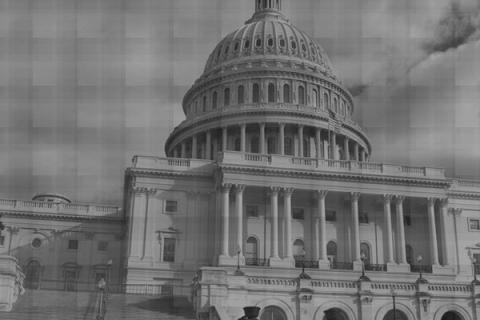Commonly referred to as the "Bush tax cuts," the Jobs and Growth Tax Relief Reconciliation Act of 2003 cut taxes on personal income, the estate tax, dividends, and capital gains- with a sunset provision for the tax cuts to expire at the end of 2010. As December 31st looms closer, the debate over whether or not to extend the Bush-era tax cuts is heating up.
While the politicians on Capitol Hill seem to agree that most of the tax cuts should be extended, those cuts for people making more than $250,000 are the subject of a vigorous economic and moral debate. Republicans generally seem to support extending all of the tax cuts, while Democrats want to allow "tax cuts for the wealthy" to expire.
President Obama argued that higher income taxpayers "are folks who are less likely to spend the money, which is why economists don't think tax breaks for the wealthy would do much to boost the economy," but two opinion columnists at Forbes rebut this position, claiming that this focuses too narrowly on the role of consumer spending in stimulating economic growth. Saving, they argue is good for the economy, because saving is really investing, which drives sustainable economic growth by funding profitable enterprises.
And while Republicans also argue that allowing these tax cuts to expire will hurt successful small business owners and prevent them from creating more jobs, Democrats are saying that most small business owners won't be affected by the expiration, because only 3% of small business owners make more than $250,000 a year. President Obama suggests that the money should be used to pay down the deficit instead of funneled to the wealthy.
Another Democratic alternative to making the tax cuts permanent for the top 2% of earners has been submitted by Sen. Mark Warner (D-VA), who wants to allow the tax cuts for top wage earners to expire, but instead of taking that money out of the economy to pay down the deficit, funnel it into even more tax cuts for small businesses.
It's important to note, however, that Warner's plan sounds less like a tax cut and more like a subsidy. Any kind of tax relief that is "targeted" like Warner wants, instead of across-the-board, is a lot more like the government deciding winners and losers than it is the government simply taking less of our money.
So what do most Americans think?
A recent Gallup poll shows that the majority of Americans favor letting the tax cuts for the wealthy expire while keeping the rest of the tax cuts permanent. While 37% want to keep the tax cuts in place just like they are now, 44% want to keep the tax cuts for anyone earning less than $250,000 while allowing the rest to expire. Beyond that, 15% of Americans want all of the tax cuts to expire for all taxpayers. That makes 59% of Americans who don't believe the top earners should receive continued tax relief.
And what do the economists think?
CNN reports that most economists side with the 37% of Americans who believe the tax cuts should remain just as they are for everyone. In fact, of the 31 leading economists surveyed, 18 believed that extending "the Bush tax cuts" for all taxpayers of every income level is the single most important thing Congress can do to help the economy.

